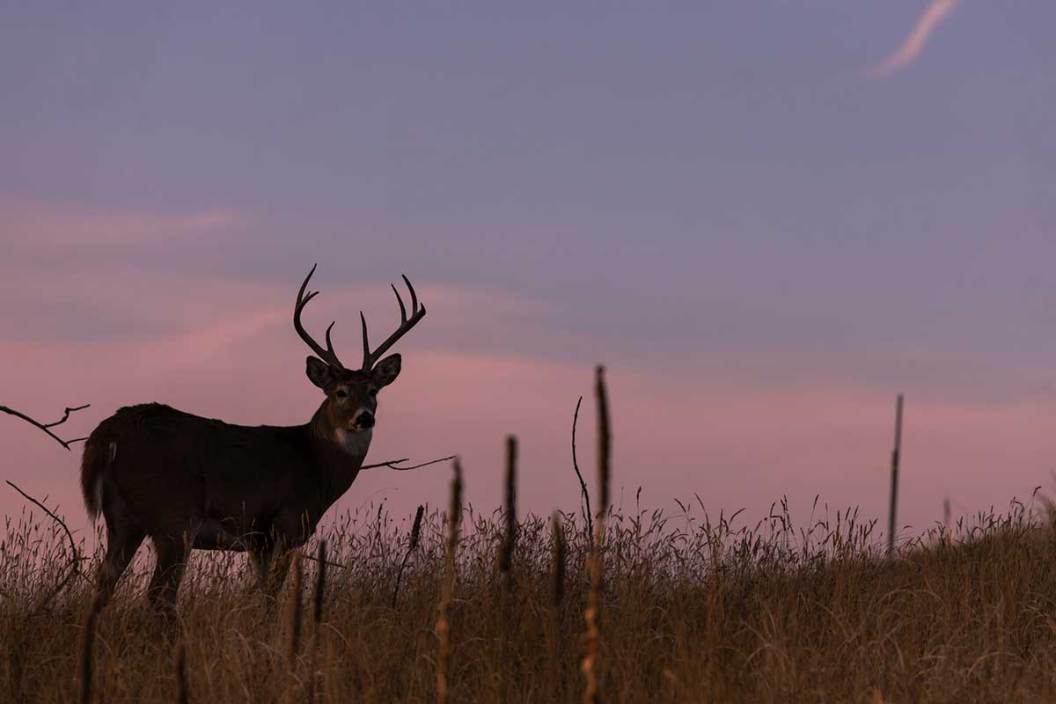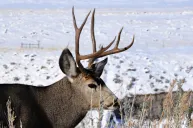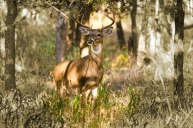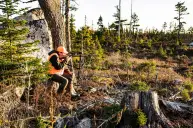Tens of thousands of whitetail deer get bagged every year out West. Even though mule deer are usually first in the conversation, there are great whitetail opportunities west of the Mississippi. It can be a chore to filter through the reports and data to determine where the best U.S. whitetail hunts are, so we set out to find the best western states for whitetail hunting based on a few factors. There are plenty of whitetails to be had in the western states, but things like access, success rate, and tag or license options need to be taken into consideration. The opportunity comes down to the ease of getting a tag, the number of tags awarded, and the success rate. We'll break down the numbers state by state and decode everything you need to know about hunting whitetail out West.
5. Washington
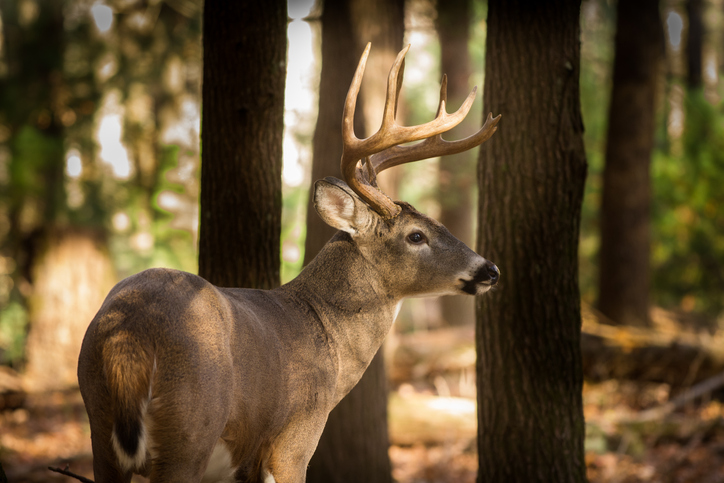
EEI_Tony/Getty
Washington might not be the first state that comes to mind when discussing big game hunting, but preserved mountain ranges and rolling forests fill the state, sheltering many trophy-worthy animals. There are estimated to be 300,000 deer in the state, a little more than 100,000 of which are whitetails. The buck harvest in 2020 was 25% of the over 110,000 tags Washington issued that year.
By the numbers, that's plenty of quality game getting bagged, but nonresidents still have tough odds in the draw, and getting a tag isn't cheap. The base deer license for someone from out of state is $434, and the application fee for a deer tag is another $110. If you can spend it, Washington has excellent opportunities for whitetail hunts, but applying for tags in other states first would probably be worthwhile in case you miss out.
4. Colorado
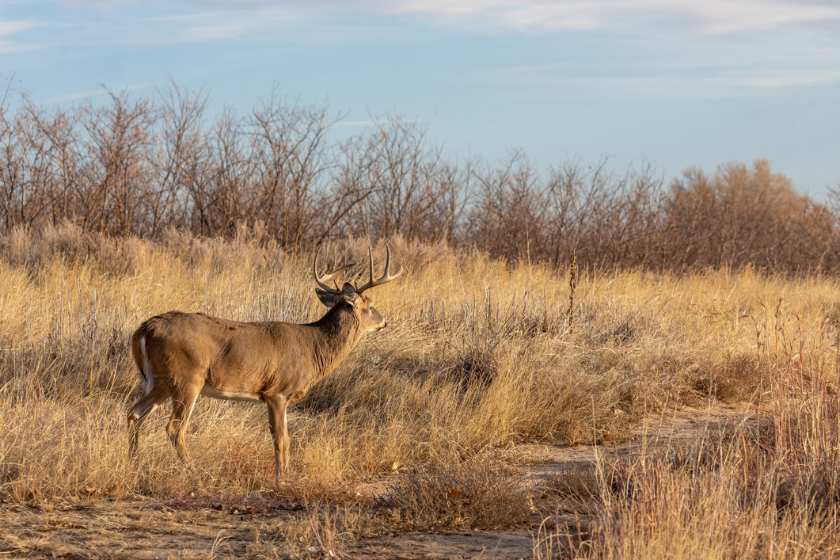
twildlife via Getty Images
Colorado has long been one of the top states for quality deer hunts, but pressure on public lands has made taking a trophy more complicated in recent years. Success rates are still reasonable, with 45% of hunters harvesting and 34% taking home a buck. That is a reasonably high success rate compared to national numbers.
The trouble is that most antlered deer are taken on private lands, so you need to have a friend in the state or pay for a guided hunt to have odds at a good shot opportunity. Fully guided five-day hunts in Colorado are currently around $6,000-$8,000 but usually include lodging, meals, and sometimes game processing. That is certainly an experience, but it is not what most of us are interested in for our yearly hunts. You can try to find a lease on private land or start making friends in a Colorado hunting social media group until you get invited out to private land. Many hunters are determined to get out there and choose to DIY on public lands. Whichever way you decide to do it, the nonresident deer tag/fishing license will cost you $420 in 2022. It is Colorado, after all.
3. Montana
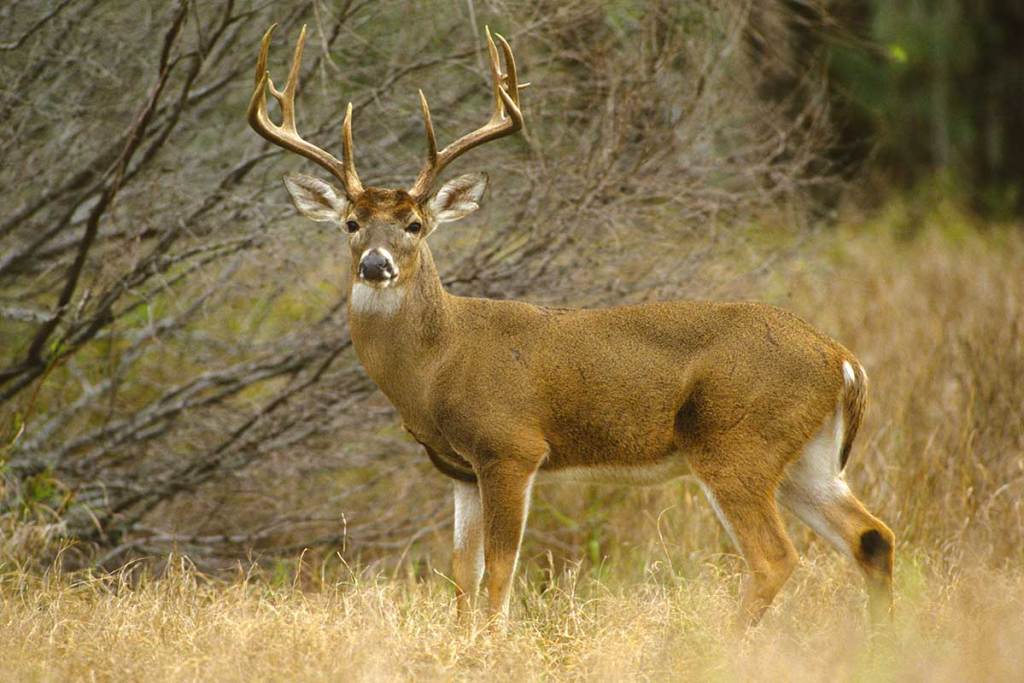
twildlife/Getty
For a good reason, many outdoor writers will put Montana at the top of the whitetail opportunities in western states, but the hunting season can still get a bit busy. Montana has the largest whitetail population on this list, but they also issue many tags, around 110,000 annually. Montana also has plenty of big bucks to chase after, even though there are not many Boone & Crockett entries taken on an annual basis.
Even with so many hunters out during the prime hunting periods (i.e, the rut), the harvest rate is still around 38%, with the success rate for bucks at 29%. It can be expensive to hunt in Montana for nonresidents, however. You'll need a base hunting license and conservation licenses for $25 more. Then there are a few options for getting a whitetail tag. A Deer Combination/Drawing tag includes your General Deer, Upland Bird, and Fishing licenses and enters you in the draw for a deer tag for $646. Alternatively, you can buy a nonresident Deer Combination License for $323 or a whitetail and zone-exclusive Deer B permit for $75. These go on sale in August and give you a good shot at getting a good hunt in, but they are still subject to current management policies. For more info, you can read the 2022 Montana FWP regulations.
2. Wyoming
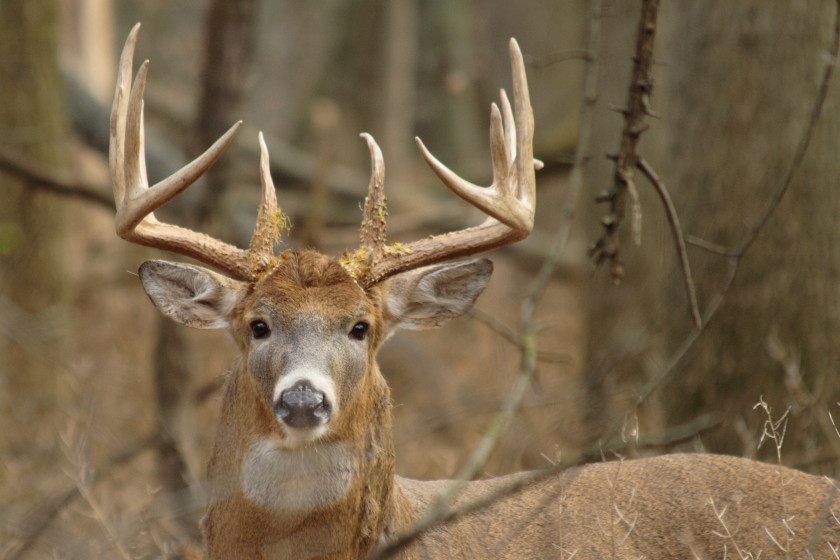
Getty Images: marcinplaza
Wyoming is perhaps the wildest place in the lower 48. It has the smallest human population of any state, with only Alaska having a lower population density. This means it is full of pristine wildlife habitat and harbors great hunts. Wyoming has the highest success rate of all the states on this list at 62%. The only drawback is that because the whitetail population is smaller here, the state issues fewer tags, only about 29,000 annually. Still, if you have a lucky draw year, you can look forward to a high-probability hunt in some of the best deer areas in the country.
There are many more mule deer (around 340,000) than whitetail in Wyoming, so when you finally decide to pull the trigger, make sure it is a whitetail on the other end of your bore. There are a handful of key differences between whitetails and mule deer, but it can be difficult to tell at long distances, so do your homework beforehand.
1. Idaho
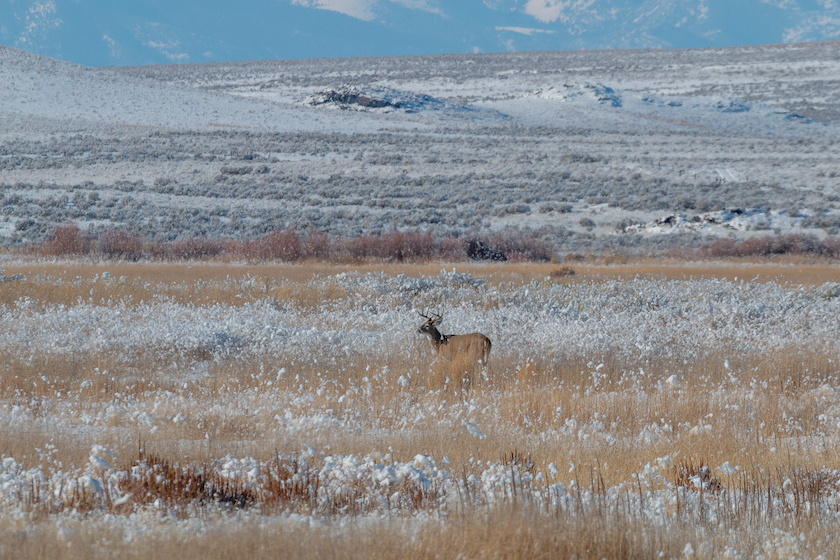
equigini via Getty Images
Idaho is number one on the list for high marks in multiple categories. The state has a large whitetail population, estimated at 205,000 in 2021. Hunters that get tags in Idaho also have the second-highest success rate of the states listed, with a 42% and 31% buck harvest rate. Add in that Idaho issues about 60,000 tags a year for about $300, and it's easy to see why this state took the top spot. Idaho now restricts tags to a specific game management unit (GMU), so if you're applying for a tag it's worth researching in advance. Idaho Fish and Game's GMU hunt planner is another helpful tool. According to Huntscore, the top 10 units for 2021 were 10A, 11A, 30, 15, 14, 51, 1, 28, 8A, and 17.
Hunting units can be challenging for out-of-state hunters trying to draw a tag because proper, thorough scouting is nearly impossible. If you don't draw a tag that year, your scouting is worthless, and if you spend a bunch of time scouting bad units, you know where not to apply for a tag but still have no idea where the good spots are. You will have to do most of your scouting online and get advice from other hunters that frequently hunt in the area.
Luck of the Draw: New Mexico

mlharing/Getty
As an added bonus entry, chasing the elusive Coues whitetails found in portions of New Mexico is an enriching experience for those wanting a uniquely challenging hunt in the high desert. These small-statured deer, sometimes called "Gray Ghosts," are on many hunters' bucket lists.
The New Mexico Standard and Quality Deer Licenses let you hunt Coues deer, and according to New Mexico Game and Fish, Coues only account for 5% of the annual deer harvest. As licenses in New Mexico are almost exclusively for antlered deer, this works out to about 500 Coues bucks per year.
The West promises rugged terrain, stunning views, and trophy-worthy game animals, including whitetails. Navigating the tag lotteries takes both patience and money, and the hunts themselves are often physically challenging and require thorough preparation. However, for those with commitment, these can be once-in-a-lifetime trips.
